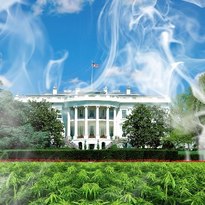
I feel that Senator Winder does not have a proper understanding of the “Controlled Substance Act of 1970;” After providing him factual and lawful information in regards to this Act Winder stated, “I don’t know what you’re talking about.”
Looking at the facts contained within this Act, the classification of marijuana/cannabis is in direct violation of the Act itself, and therefore should be considered inadmissible. My factual reasoning behind this directs me to the requirements of a “Schedule I Controlled Substance.”
According to USC>Title 21>Chapter 13>Subchapter 1>Part B>Section 812 “…a drug or other substance may not be placed in any schedule unless the findings required for such schedule are made with respect to such drug or other substance. The findings required for each of the schedules are as follows:” (I feel that only schedule I is significant in my testimony so I will not be listing all schedules.)
(1) Schedule I
(A) The drug or other substance has a high potential for abuse.
(B) The drug or other substance has no currently accepted medical use in treatment in the United States.
(C) There is a lack of accepted safety for use of the drug or other substance under medical supervision.
For this testimony I would like to direct my attention to part (B) of this schedule. This states that marijuana, as a Schedule I substance, has no accepted medicinal value in the United States. This is simply not true as there are multiple patents on medical marijuana; one in particular is held by the United States of America, as represented by the Department of Health and Human Services. This is Patent No. 6,630,507, which I have taken the liberty of adding for the committee.
United States Patent 6,630,507
Hampson , et al. October 7, 2003
Cannabinoids as antioxidants and neuroprotectants
Abstract
Cannabinoids have been found to have antioxidant properties, unrelated to NMDA receptor antagonism. This new found property makes cannabinoids useful in the treatment and prophylaxis of wide variety of oxidation associated diseases, such as ischemic, age-related, inflammatory and autoimmune diseases. The cannabinoids are found to have particular application as neuroprotectants, for example in limiting neurological damage following ischemic insults, such as stroke and trauma, or in the treatment of neurodegenerative diseases, such as Alzheimer's disease, Parkinson's disease and HIV dementia. Nonpsychoactive cannabinoids, such as cannabidoil, are particularly advantageous to use because they avoid toxicity that is encountered with psychoactive cannabinoids at high doses useful in the method of the present invention. A particular disclosed class of cannabinoids useful as neuroprotective antioxidants is formula (I) wherein the R group is independently selected from the group consisting of H, CH.sub.3, and COCH.sub.3. ##STR1##
Inventors: Hampson; Aidan J. (Irvine, CA), Axelrod; Julius (Rockville, MD), Grimaldi; Maurizio (Bethesda, MD)
Assignee: The United States of America as represented by the Department of Health and Human Services (Washington, DC)
Appl. No.: 09/674,028
Filed: February 2, 2001
PCT Filed: April 21, 1999
PCT No.: PCT/US99/08769
PCT Pub. No.: WO99/53917
PCT Pub. Date: October 28, 1999
This patent shows the many uses of cannabinoids which are found in marijuana/cannabis. What are cannabinoids though?
One learns in biology that the human body has many systems; the circulatory, respiratory, digestive, and nervous systems to name a few. Each system of the human body has parts. For example, the nervous system is made up of the brain, spinal cord, and nerves. By the late 1980s, science identified a new human system known as the endocannabinoid system (ECS). This system present in all mammals, which includes humans and 15,000 other species. A mammal is any vertebrate animal distinguished by self-regulating body temperature, hair, and milk-producing females.
The ECS has two main parts: cannabinoids, which are chemical neurotransmitters, and two receptors called “CB1″ and “CB2.” Cannabinoids activate receptors found throughout the body; in all organs, for example. In fact, all systems in our bodies are modulated by the endocannabinoid system. This means that as a body system changes, it uses the ECS to do so.
Science has defined three classifications of cannabinoids. These are “endogenous cannabinoids” (endocannabinoids), which are produced by the human body; herbal cannabinoids, or the found in the cannabis sativa/indica plants (marijuana); and synthetic cannabinoids, normally produced and distributed by pharmaceutical companies, but also found in spice, k-2, or herbal incense (on one end of the spectrum these are deemed highly dangerous, on the other very valuable).
Use of cannabinoids found in marijuana/cannabis is covered under Patent No.6,630,507. Since no one has been arrested for patent infringement, this is therefore called "Easement." The non-action of law enforcement enforcing this patent technically allows legal use of cannabis in all forms.
When two Federal Agencies who receive federal tax dollars, claim different facts, the only facts which are true are contained under U.S. Patent laws, and not made up by the DEA.
Making marijuana/cannabis legal is not about letting people smoke a natural non-toxic substance. It is about creation of jobs, making an already existing industry legal, and providing safe access to the world’s least harmful medicine.
It is a crime to keep the marijuana/cannabis laws on the books, since the laws were created using fraud for “profit” and lies about its true uses; such as providing safe medicine, powering our cars, feeding the poor, clothing the world, and cleaning our skies of air pollution amongst thousands of other uses.
Smoking cannabis is less than .1% of the total uses of hemp and marijuana. Users tend to be non-violent and peaceful. We only want freedom restored by using truth and liberty as a base; a concept that is very American. Using deadly force, military tactics, and invasions of privacy against us is unjust and should be considered as terrorism. Promoting or enforcing the laws against marijuana/cannabis is an act of treason on the sovereign citizens of America. ("…kill or personally injure the sovereign or the sovereign's family." [1])
[1] http://www.merriam-webster.com/dictionary/treason




